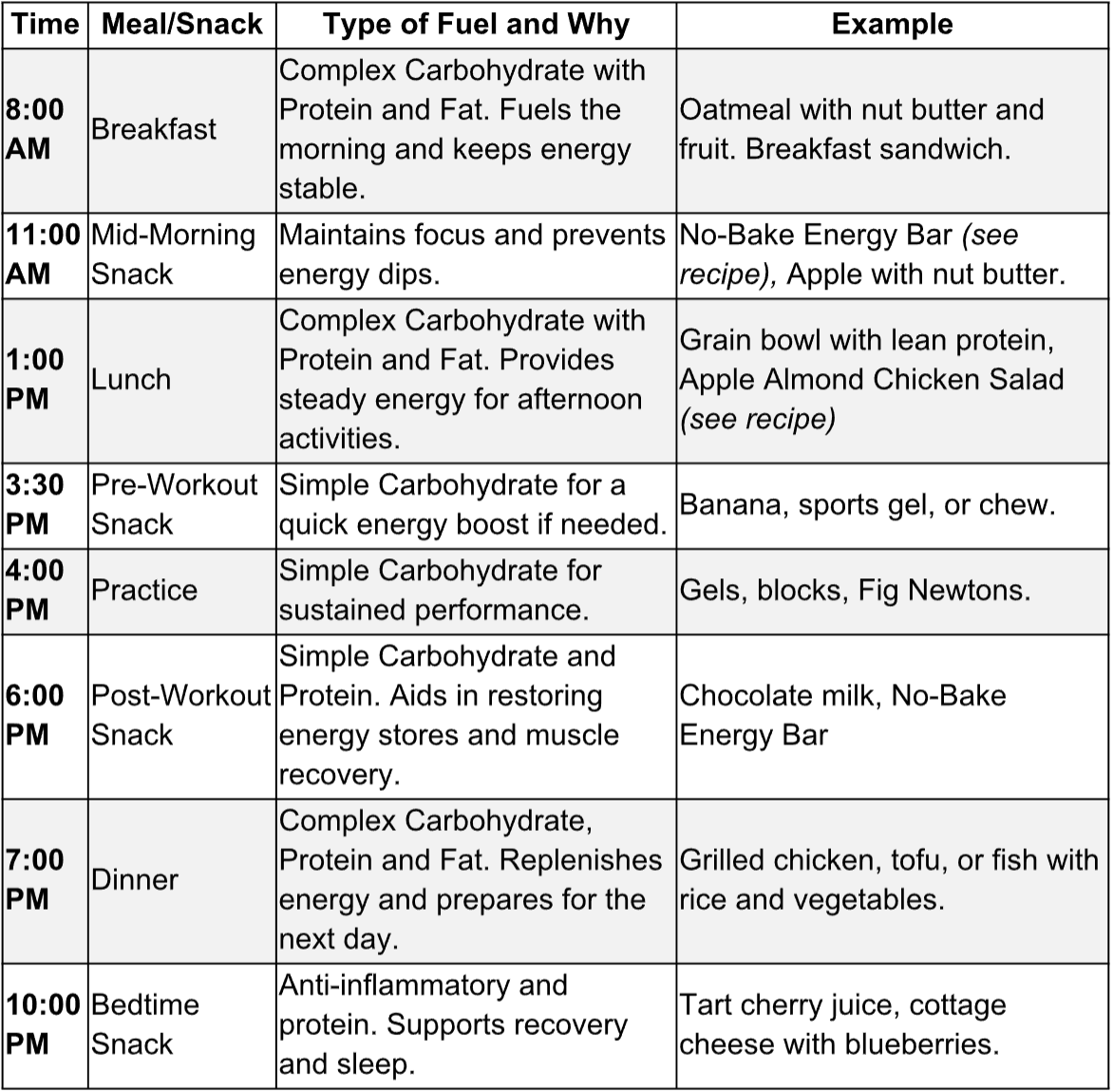Your young athlete is heading out the door for school at 8 a.m., and you’re not going to see them until maybe 8 p.m. or later. They have a full day of classes followed by a sport activity that runs through dinner time. They need fuel, not just to stay sharp in the classroom, but for their workout and to jump-start recovery afterward. As a busy parent trying to balance it all, navigating the needs of your growing athlete can feel overwhelming.
Adolescence is a time of rapid growth and development, and our kids have increased energy needs to support hormone balance, bone health, muscle development, and brain and cognitive function. We add on sports and extracurricular activities, and their energy demands become much greater. It is important to focus on supporting this growth and development, understanding that it can affect their overall health and well-being into adulthood.
Look at each of their meals as a building block, one building off the other, ensuring they have a steady supply of energy throughout the day and to help them recover and sleep at night. If your young athlete is not fueling well in the morning, they are starting the day depleted, which can create a cascading effect that doesn’t allow them to be ready for practice or recovery.
Additionally, making food choices is complex for adolescents—with influences from family, friends, and coaches. Studies show that adolescence is a critical time for them to start gaining autonomy over what they eat. Give them some guidance by developing a routine that works with your family dynamic, involves your young athlete, and creates an environment of teamwork to meet everyone’s needs.
Here are some ideas from which you can start fine-tuning strategies for your home. The goal is not perfection, but creating a routine that is sustainable and allows consistency in maintaining healthy habits.
Meal Plan Together: Schedule time each week to choose meals that align with your young athletes’ training needs and personal preferences. You can pre-select recipes that you know they like to help streamline the planning.
Make Grocery Shopping a Shared Task: Invite your young athlete to help you make the shopping list and, if possible, help you shop. Consider using a shared app to create shopping lists and share between your devices.
Share Meal Prep Duties: While finding time for everyone to sit down together can be difficult, there are still ways to create a sense of togetherness. Consider reframing how this collective time together looks—meal preparation can be a great way to connect!
Encourage your young athlete to help with cooking, packing snacks, or prepping meals for the week. Again, giving them a role adds to building autonomy in fueling and making progress in creating consistent, healthy habits.
Purchase meal prep containers that can be labeled and put in the refrigerator and freezer so that if your young athlete gets home late, there are balanced meals to choose from.
If all this feels overwhelming, start small. Start by planning one meal a week and then build up from there. It’s never too late to start a healthy habit!
Education is power. With influences from peers and coaches, better nutrition principles will settle in if more consistent messaging is happening within their circles.
Involve Teammates and Families: Encourage team contribution for food brought to events. Coaches, parents, or teammates can coordinate bringing snack options for the team. Focus on providing well-rounded snacks and drinks like extra water and electrolytes, milk, orange slices, apple slices, pretzels, graham crackers, or white bread (white bread for a simpler carbohydrate and easier digestion around workouts) with nut butter and jam.
Find a sample meal plan and 2 (of the more than 50) recipes included in The Young Runner’s Guide to Nutrition to help you get started!





